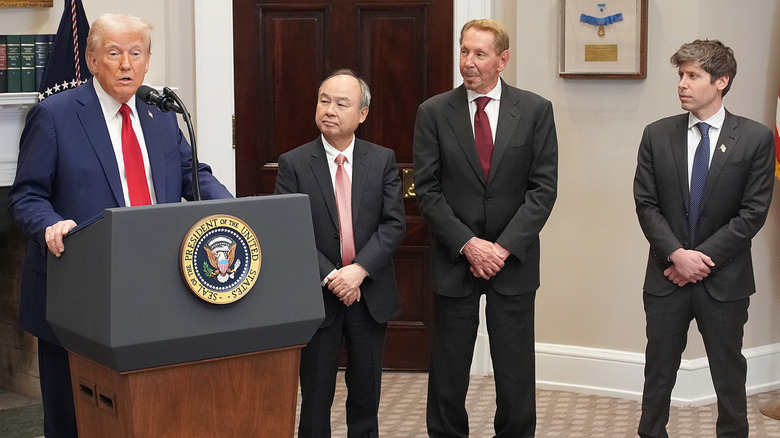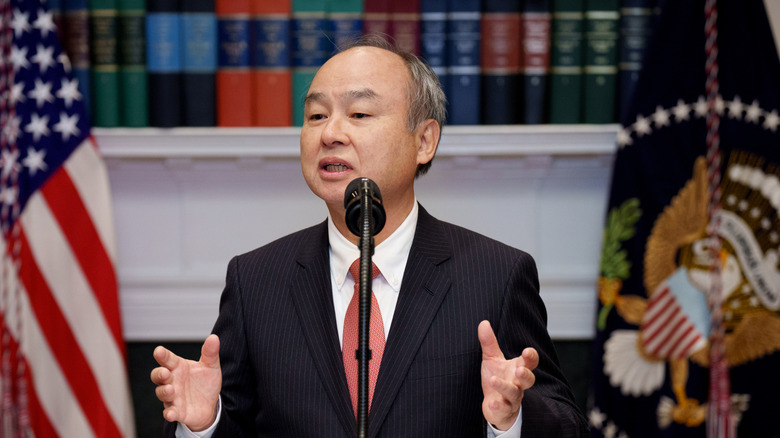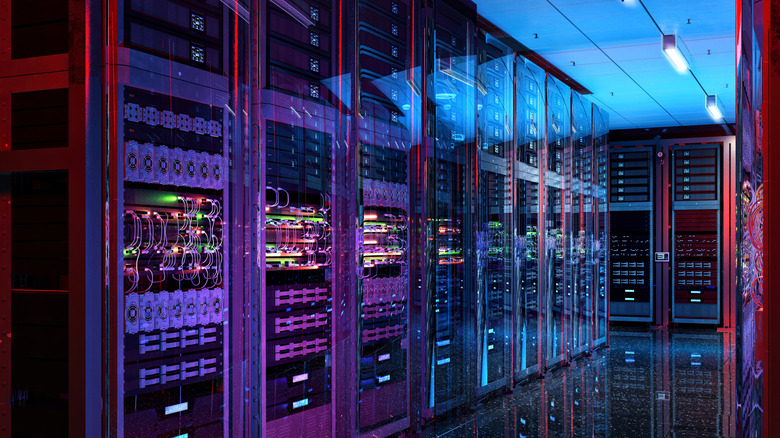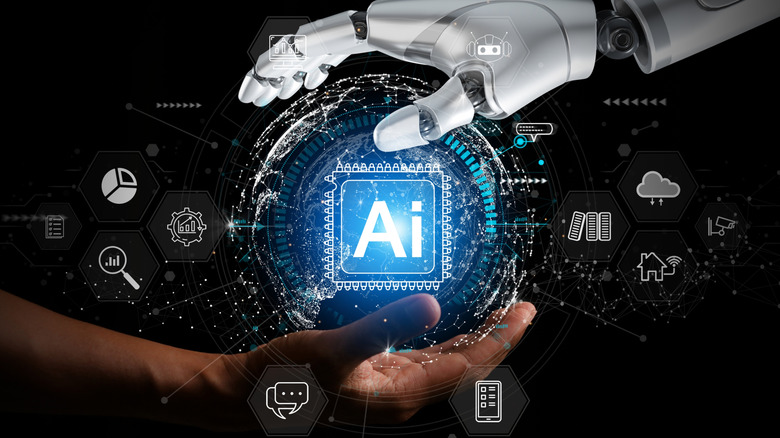What Is The Stargate Project? The United States' $500 Billion AI Venture, Explained
President Donald Trump has described the launch of the Stargate Project as a "monumental undertaking" and "a resounding declaration of confidence in America's potential." He announced the launch on Jan. 21, flanked by three of the biggest names in the tech sector: OpenAI's Sam Altman, Oracle's Larry Ellison, and SoftBank's Masayoshi Son. So what exactly is the Stargate project?
It's a new company formed by a collaboration of some of the biggest giants in technology, primarily SoftBank and OpenAI, with additional equity funding from Oracle and MGX, a technology-investment firm based in the United Arab Emirates. Microsoft, Nvidia, and Arm, a British processor company, are also involved as technology partners. Trump described Stargate as the largest AI infrastructure project ever. Its goal is to build a new AI infrastructure in the United States, surpassing that of any other country.
Even though Trump was keen to take credit for the new initiative — and Ellison, Son, and Altman were happy to give it to him — the project predates the 47th president's current term. It has been in the works since early 2024, and construction of the data centers was already underway at the time of Trump's speech. Nevertheless, Trump's backing will smooth the way for building more data centers. He has promised to declare emergencies to ensure that Stargate won't face obstacles in building the power plants it will need.
Why is it a big deal and what is it going to achieve?
Project Stargate is big news because of the enormous sums of money involved. It has started with an investment of $100 billion and aims to invest a total of $500 billion over the next four years.
What Stargate plans to achieve with the money toward making AI the future is still a bit vague. An announcement on the OpenAI website says Stargate intends "to build and develop AI — and in particular AGI — for the benefit of all of humanity."
During the Jan. 21 press conference, Altman and Ellison speculated on the benefits that AI could bring in terms of medical research. Altman said, "I believe that as this technology progresses, we will see diseases get cured at an unprecedented rate. We will be amazed at how quickly we're curing this cancer and that one, and heart disease." Ellison added, "One of the most exciting things we're working on, again using the tools that Sam and Masa are providing, is a cancer vaccine."
But the scope could go much further than that. AI is categorized into three types: artificial narrow intelligence, the evolving machine learning we already have; artificial general intelligence (AGI), which would have human-like cognitive abilities; and artificial superintelligence, which would surpass human capabilities. Stargate plans to crack artificial general intelligence and then artificial superintelligence. "Artificial superintelligence will come to solve the issues that mankind would never ever have thought that we could solve," Son said.
What about Stargate's environmental impact?
Data centers consume a huge amount of electricity and water. According to a report by the Berkeley Lab, electricity consumption by U.S. data centers rose from 58 terawatt hours in 2014 to 176 TWh in 2023, with projections of between 325 and 580 TWh by 2028. (A terawatt hour is a unit of energy equal to one trillion watt-hours, and is used to measure large amounts of energy consumption.)
Talking about Stargate's initial data centers in Abilene, Texas at the announcement, Ellison said, "Each building is a half-million square feet. There are 10 buildings currently being built, but that will expand to 20 in other locations." Stargate may well push the Berkeley Lab's projections still further.
The good news is that the big names in the Stargate project have already committed to reducing their carbon emissions. Microsoft Azure, the infrastructure currently used by Open AI, has been carbon neutral since 2012 and has a commitment to 100% renewable energy by 2025. Softbank has set a target to be carbon neutral by 2030, and Oracle aims to use 100% renewable energy across all of its operations by 2025.
What will be the long-term impact of Stargate?
Although Trump says Stargate is expected to create over 100,000 jobs soon in the U.S., there's a concern that, in the long term, artificial intelligence might replace many existing professions. In 2024, recruitment company Adecco surveyed 2,000 executives in countries including the U.S., the U.K., Japan, and Canada. The results showed that 41% believed that they would employ fewer people within five years because of AI. And only 46% will find other roles for employees whose jobs are lost because of AI.
Beyond employment, the long-term impact of artificial general intelligence and supercomputers is not yet known. Stargate's AI ethics weren't laid out in the announcement. Trump has already revoked a 2023 executive order by former President Joe Biden that aimed to mitigate AI-related risks by requiring companies to share safety test results with the government before public release. Trump said the order would stifle AI innovation.
Where will Stargate take us? We don't know right now. But as Trump says, "AI seems to be very hot. It seems to be the thing that a lot of smart people are looking at."



